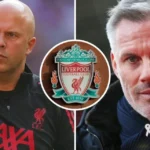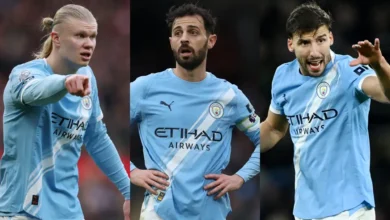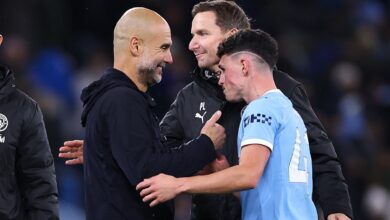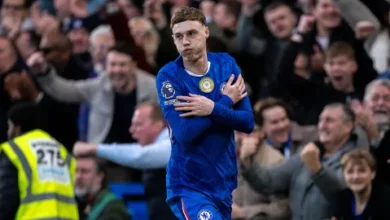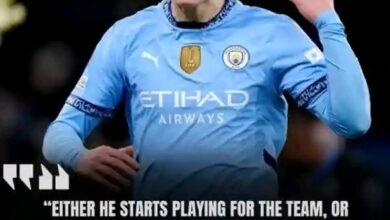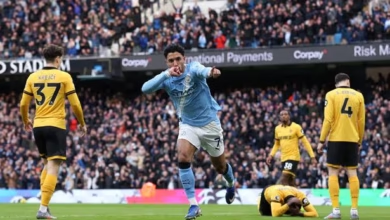Premier League owner now wants to see his £60m star man play for Manchester City
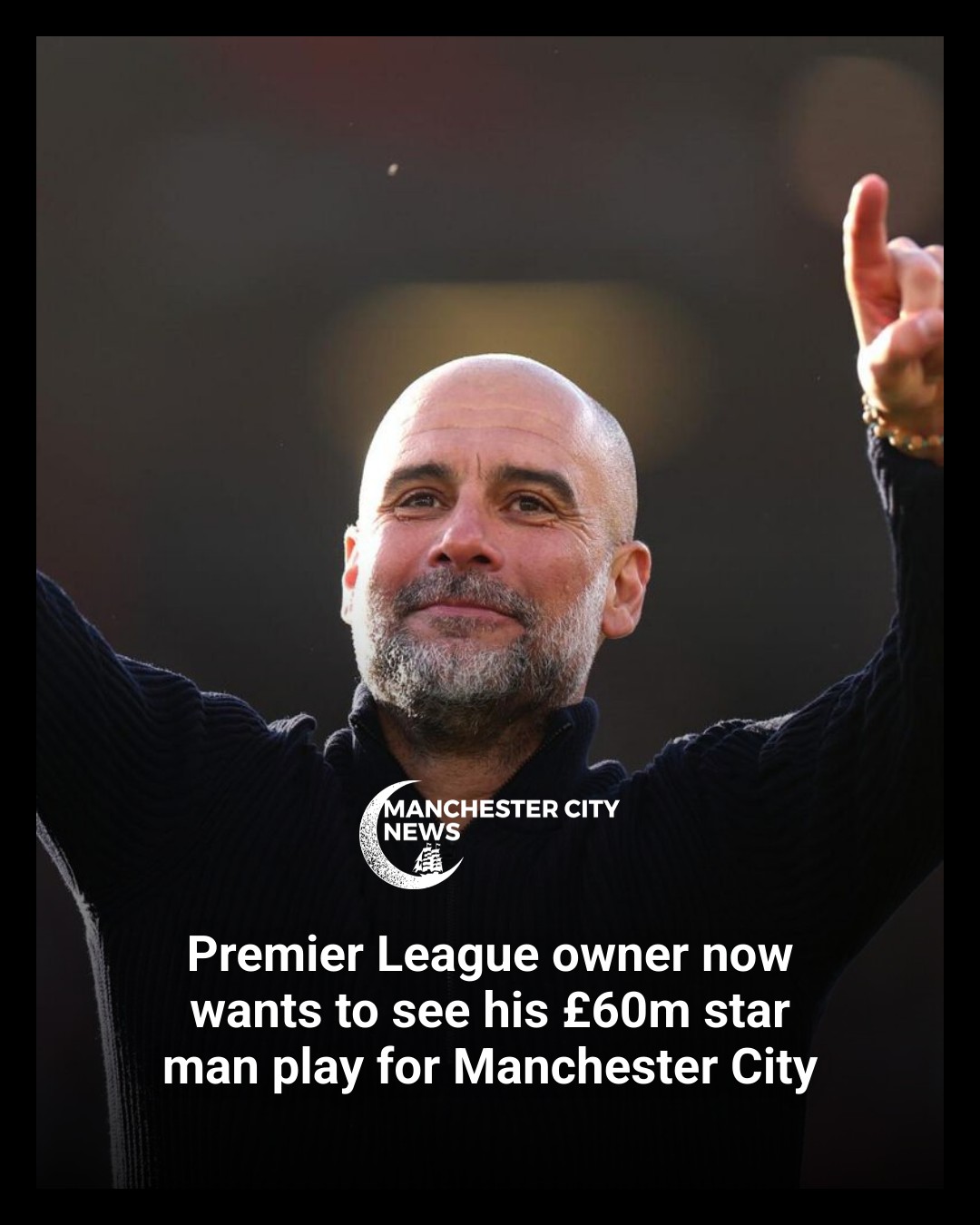
The summer transfer window of 2025 has been characterized by complex negotiations, strategic maneuvering, and unexpected twists that have redefined how clubs approach player acquisitions. At the center of one of the most intriguing sagas stands Morgan Gibbs-White, the £60 million-rated Nottingham Forest midfielder whose future has become entangled in a web of competing interests, ownership politics, and tactical considerations that extend far beyond simple player trading.
What began as a straightforward transfer pursuit has evolved into a fascinating case study of modern football’s intricate dynamics, where club owners wield significant influence over player destinations, and where the line between sporting ambition and business strategy becomes increasingly blurred. The involvement of Manchester City, Tottenham Hotspur, and Nottingham Forest in this saga reflects the complex ecosystem of Premier League football, where every decision carries implications that ripple throughout the league’s competitive landscape.
The Player at the Center: Morgan Gibbs-White’s Rise
Morgan Gibbs-White’s journey to becoming one of the Premier League’s most coveted midfielders represents a modern success story of perseverance, development, and tactical evolution. The 25-year-old’s path to prominence has been far from conventional, marked by loan spells, positional changes, and the kind of character-building experiences that often separate good players from great ones.
His technical ability has never been in question – Gibbs-White possesses the kind of close control, vision, and creativity that immediately catches the eye of scouts and coaches. However, it’s his tactical intelligence and work rate that have elevated him from a promising prospect to a player capable of influencing games at the highest level. His ability to operate in multiple positions across the midfield and attacking lines makes him particularly valuable in the modern game, where tactical flexibility is increasingly prized.
At Nottingham Forest, Gibbs-White has found the perfect environment to showcase his abilities. Under various managers, he has demonstrated his capacity to be both a creative force and a defensive contributor, embodying the kind of complete midfielder that top clubs desperately seek. His performances have not gone unnoticed, with England recognition following and establishing him as one of the Premier League’s most promising talents.
The £60 million valuation placed on Gibbs-White reflects not just his current ability, but his potential for further development. At 25, he is entering what should be the prime years of his career, making him an attractive proposition for clubs looking to build for both immediate success and long-term stability.
Manchester City’s Initial Interest and Strategic Shift
Manchester City’s interest in Morgan Gibbs-White represented a natural evolution of Pep Guardiola’s squad-building philosophy. The Spanish coach has consistently sought players who can adapt to multiple roles within his tactical system, and Gibbs-White’s versatility made him an obvious target for the Citizens’ recruitment team.
The midfielder’s profile aligned perfectly with City’s requirements: technically gifted, tactically intelligent, and capable of contributing in both phases of play. His ability to press effectively, retain possession under pressure, and create chances for teammates made him an ideal candidate to thrive in Guardiola’s demanding system.
However, City’s approach to the transfer market has evolved significantly in recent years. The club’s decision to pursue multiple signings rather than investing heavily in a single player reflects a more strategic approach to squad building. The acquisitions of Rayan Cherki and Tijjani Reijnders instead of Gibbs-White demonstrate this philosophy in action – securing two promising talents for potentially less combined cost than one established Premier League star.
This strategic shift has broader implications for how elite clubs approach recruitment. Rather than following the traditional model of identifying and pursuing individual targets, City’s approach suggests a more analytical, portfolio-based methodology that spreads risk while maximizing potential returns. The success of this approach will likely influence how other top clubs structure their transfer strategies in future windows.
Tottenham’s Pursuit and the Illegal Approach Controversy
Tottenham Hotspur’s entry into the race for Gibbs-White’s signature introduced a controversial element that has dominated headlines and created lasting tensions between clubs. The North London club’s approach to securing the midfielder’s services has been characterized by Nottingham Forest as illegal, leading to a formal complaint that threatens to escalate into a significant dispute within the Premier League’s governance structure.
The nature of illegal approaches in modern football is complex and often involves subtle violations of established protocols. These can range from unsanctioned contact with players or their representatives to inappropriate influence on contract negotiations. While the specific details of Tottenham’s alleged transgression remain unclear, the severity of Forest’s response suggests a significant breach of accepted practices.
For Tottenham, the acquisition of Gibbs-White represents more than just adding talent to their squad – it’s about establishing their credentials as a club capable of competing with the Premier League’s elite. Under various managers, Spurs have struggled to find the consistency and quality in midfield that characterizes successful teams. Gibbs-White’s creativity, work rate, and Premier League experience could provide the missing piece in their tactical puzzle.
The £60 million agreement reportedly reached between Tottenham and the player demonstrates the club’s serious intent. However, the subsequent controversy has cast doubt over whether the deal can proceed as planned, creating uncertainty that benefits neither club nor player.
Evangelos Marinakis: The Owner’s Perspective
Nottingham Forest owner Evangelos Marinakis has emerged as a central figure in this transfer saga, and his actions provide fascinating insight into how modern football ownership operates. The Greek shipping magnate’s reported preference for Manchester City over Tottenham as a destination for Gibbs-White reflects a complex calculus that extends beyond simple financial considerations.
Marinakis’s position appears to be rooted in both sporting and business logic. From a sporting perspective, allowing Gibbs-White to join Manchester City would represent a validation of Forest’s ability to develop players capable of contributing to the Premier League’s most successful team. This has obvious benefits for the club’s reputation and future recruitment efforts.
The business implications are equally significant. A move to Manchester City could set precedents for future transfers, potentially increasing the valuations of other Forest players and establishing the club as a legitimate source of talent for elite teams. This could have long-term financial benefits that extend far beyond the immediate transfer fee.
Marinakis’s apparent fury with Tottenham’s approach suggests a principled stance that prioritizes proper conduct over financial gain. This position, while admirable, also carries risks – alienating potential buyers could limit future transfer opportunities and reduce the club’s ability to maximize revenue from player sales.
The Player’s Perspective: Gibbs-White’s Preferences
Understanding Morgan Gibbs-White’s own preferences in this complex situation requires examining both his stated positions and the broader context of his career ambitions. Reports suggest that the midfielder informed Marinakis at the end of the previous season that he would only leave Nottingham Forest for “a certain level of club,” indicating clear hierarchy preferences that favor Manchester City over Tottenham.
This preference likely reflects several factors beyond simple prestige. Manchester City’s track record of developing players, their consistent Champions League participation, and their domestic success provide compelling reasons for any ambitious player to prefer them as a destination. The opportunity to work under Pep Guardiola, widely regarded as one of the greatest coaches in football history, adds another dimension to City’s appeal.
However, Gibbs-White’s situation is complicated by the practical realities of the transfer market. Manchester City’s decision to pursue alternative targets has effectively removed them from the equation, at least for the current window. This leaves the player in a difficult position – his preferred destination is no longer available, while his alternative option comes with the baggage of the illegal approach controversy.
The midfielder’s absence from Forest’s pre-season training camp in Portugal, attributed to “a private matter,” has fueled speculation about his mental state and commitment to resolving the situation. While the exact nature of this absence remains unclear, it highlights the personal toll that complex transfer situations can take on players.
The Broader Transfer Market Context
The Gibbs-White saga unfolds against the backdrop of a transfer market that has become increasingly complex and sophisticated. The modern game’s financial realities mean that clubs must balance multiple considerations when making transfer decisions, from Financial Fair Play regulations to squad composition requirements and long-term strategic planning.
Manchester City’s approach to this window exemplifies how elite clubs now operate in the transfer market. Rather than pursuing individual marquee signings, they have adopted a more analytical approach that seeks to maximize value across multiple acquisitions. This strategy reflects the influence of data analytics and performance modeling in modern recruitment.
The controversy surrounding Tottenham’s approach also highlights the increasingly regulated nature of player transfers. The Premier League’s strict rules governing club-to-club negotiations are designed to maintain competitive integrity, but they also create opportunities for disputes when protocols are allegedly breached.
Tactical Analysis: Where Gibbs-White Would Fit
Understanding the tactical implications of Gibbs-White’s potential moves requires analyzing how he would fit into different systems and what he would bring to each club. At Manchester City, his versatility would have made him valuable across multiple positions in Guardiola’s fluid system.
Gibbs-White’s ability to operate as a traditional central midfielder, an attacking midfielder, or even in wider positions would have provided Guardiola with the tactical flexibility he prizes. His pressing intensity and defensive work rate align with City’s high-energy approach, while his creativity and technical ability would complement their possession-based style.
At Tottenham, Gibbs-White would likely assume a more central creative role, potentially operating as the primary link between midfield and attack. His experience in the Premier League and understanding of English football’s physical demands would be immediate assets, while his age profile fits with Spurs’ strategy of building around players entering their prime years.
The tactical impact of losing Gibbs-White would be significant for Nottingham Forest. His contribution to both attacking and defensive phases has been crucial to their Premier League survival and progress. Replacing such a complete midfielder would require either multiple signings or a significant tactical adjustment from their coaching staff.
Financial Implications and Market Dynamics
The £60 million valuation of Morgan Gibbs-White reflects the current state of the Premier League transfer market, where proven English talent commands premium prices. This valuation must be understood within the context of recent transfers and the particular value placed on homegrown players by English clubs.
For Nottingham Forest, the potential sale represents a transformative financial opportunity. The fee would provide significant resources for squad strengthening and infrastructure development, potentially accelerating the club’s long-term progress. However, it also represents the loss of their most valuable asset and primary creative force.
The financial implications extend beyond the immediate transfer fee. Performance-related add-ons, sell-on clauses, and other contractual provisions could significantly increase the total value of any deal. These structures have become increasingly common as clubs seek to protect their interests while facilitating player movement.
The Role of Agent and Representatives
Modern transfers are rarely simple bilateral negotiations between clubs. The involvement of agents, representatives, and other intermediaries adds layers of complexity that can significantly influence outcomes. In Gibbs-White’s case, his representatives must navigate competing interests while ensuring their client’s preferences are respected.
The agent’s role becomes particularly complex when illegal approach allegations emerge. Balancing the player’s interests with regulatory compliance requirements creates challenging ethical and practical dilemmas that can affect the entire negotiation process.
Media Influence and Public Perception
The extensive media coverage of the Gibbs-White saga reflects the public’s fascination with transfer stories and their broader implications. Social media has amplified every development, creating additional pressure on all parties to resolve the situation quickly and satisfactorily.
Public perception plays an increasingly important role in modern transfers. Clubs are acutely aware of how their actions are perceived by fans, media, and other stakeholders. This awareness can influence decision-making in ways that extend beyond purely sporting or financial considerations.
Regulatory Framework and Governance Issues
The allegations of illegal approaches in the Gibbs-White case highlight broader questions about the Premier League’s regulatory framework and its effectiveness in governing club behavior. The league’s rules are designed to ensure fair competition and protect smaller clubs from predatory behavior by larger rivals.
However, enforcement of these regulations can be challenging, particularly when dealing with sophisticated legal and commercial structures. The outcome of any investigation into Tottenham’s alleged conduct could set important precedents for future cases.
Alternative Scenarios and Future Possibilities
Several scenarios remain possible as the Gibbs-White saga continues to unfold. Manchester City could potentially re-enter the race if their other transfer priorities are resolved, though this appears unlikely given their stated strategic approach.
Tottenham could resolve the illegal approach allegations and proceed with their planned acquisition, though this would require satisfying Nottingham Forest’s concerns about their conduct. Alternative destinations could also emerge, particularly if the current stalemate persists.
The possibility of Gibbs-White remaining at Nottingham Forest for another season cannot be discounted, particularly if no satisfactory resolution is reached. This outcome would require all parties to accept a status quo that may not fully satisfy anyone’s preferences.
Long-term Implications for All Parties
The resolution of the Gibbs-White saga will have lasting implications that extend beyond the immediate transfer. For the player, his next move could define the trajectory of his career and his ultimate achievements in the game.
Nottingham Forest’s handling of the situation will influence their reputation in future transfer negotiations and their relationships with both players and other clubs. Their principled stance, while admirable, could have practical consequences for future business.
Manchester City’s strategic approach to the transfer market will be judged based on the success of their alternative signings and their ability to maintain competitive standards without pursuing marquee acquisitions.
Tottenham’s conduct and its consequences will likely influence how other clubs approach similar situations in the future, potentially affecting the broader transfer market ecosystem.
Conclusion: A Saga That Defines Modern Football
The Morgan Gibbs-White transfer saga encapsulates many of the complexities and contradictions that define modern football. It highlights the tension between sporting ambition and business considerations, the challenges of regulatory compliance in a competitive environment, and the human element that remains at the heart of the beautiful game.
Evangelos Marinakis’s bold gambit in essentially inviting Manchester City to make a rival bid for his star player demonstrates the kind of strategic thinking that modern ownership requires. Whether this approach ultimately benefits Nottingham Forest remains to be seen, but it certainly adds another fascinating chapter to an already compelling story.
As the saga continues to unfold, it serves as a reminder that football transfers are about much more than simply moving players between clubs. They involve complex negotiations between multiple stakeholders, each with their own interests and priorities. The outcome will likely influence how similar situations are handled in the future, making this case study essential viewing for anyone seeking to understand the modern game’s intricate dynamics.
The ultimate resolution may well define not just Morgan Gibbs-White’s career trajectory, but also the relationships between these three clubs for years to come. In an era where every decision is scrutinized and every move has consequences, the Gibbs-White saga stands as a perfect example of how transfer business has evolved into one of football’s most compelling and complex narratives.




